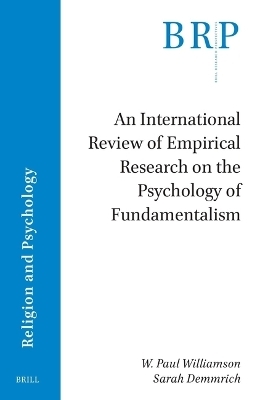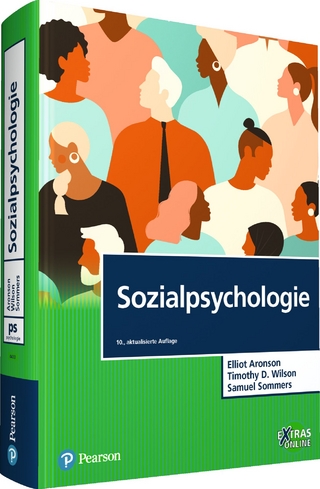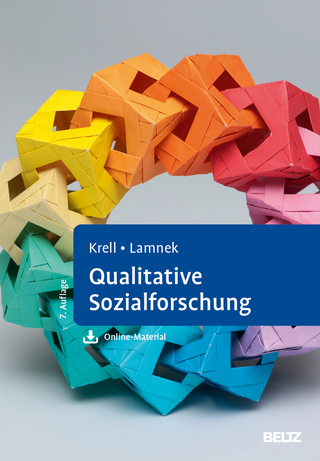
An International Review of Empirical Research on the Psychology of Fundamentalism
Brill (Verlag)
978-90-04-53500-8 (ISBN)
An International Review of Empirical Research on the Psychology of Fundamentalism is a sequel to Williamson (2020), who examined the sociohistorical emergence of fundamentalism and controversial conceptions of the movement that have dominated decades of empirical research in psychology. He concluded by calling for a critical review of this sizable literature, amassed from the early 20th century. In the present book, W. Paul Williamson and Sarah Demmrich respond by providing summaries and critical observations for 365 empirical studies, collected and organized from peer-reviewed journals. A summary of findings indicated that the largest share of statistical associations between study variables and fundamentalism was moderate in size, followed by those that were weak, and then by strong relationships, which were much less frequent. However, this observed pattern of relationships, particularly those characterized by moderate and especially strong associations, much reflected the findings from sexual bias studies. Finally, the authors offer critical considerations for sample selection, methodology, and theoretical applications in future fundamentalism research.
W. Paul Williamson, Ph.D. (1999), is Professor of Psychology at Henderson State University (USA). He has authored/co-authored numerous articles and books on psychology of religion, including The Psychology of Religious Fundamentalism (Guilford, 2005) and Conjectures and Controversy in the Study of Fundamentalism (Brill, 2020). Sarah Demmrich (m. Kaboğan), Ph.D. (2014), is a Post-doc researcher at the University of Münster (Germany) and Associate Professor of Empirical Research on Religion and Interreligious Studies at the University of Berne (Switzerland). She was the leader of the research project "Religious Fundamentalism" at the Cluster of Excellence "Religion and Politics" at University of Münster (2019-2021) and is currently working on the project "Resentment as the Affective Basis of Radicalization" at the same university.
Abstract
Keywords
1. Introduction
1.1. Collection and Categorization of Studies, and Overview of Chapters
1.2. Method of Review and Evaluation
2. Construct Definitions and Measurements of Fundamentalism
2.1. Earlier Measures of Fundamentalism (1951-1990)
2.1.1. An Exceptional Early Measure of Fundamentalism
2.2. More Recent Measures of Fundamentalism (1991-2020)
2.2.1. Measures of Fundamentalism Based on General Concepts
2.2.2. Religious Fundamentalism Scale (RFS)
2.2.3. Intratextual Fundamentalism Scale (IFS)
2.2.4. Multi-Dimensional Fundamentalism Inventory (MDFI)
2.2.5. North American Protestant Fundamentalism Scale (NAPFS)
2.2.6. Moaddel-Karabenick Fundamentalism Scale (MKFS)
2.2.7. Bible Verse Selection Task (BVST)
2.3. Chapter Conclusion
3. Demographics of Fundamentalism
4. Fundamentalism Research on Cognitive Issues
4.1. Fundamentalist Beliefs and Worldview
4.1.1. Moral Beliefs
4.1.2. Worldview
4.2. Cognition Studies
4.2.1. Specific Cognition Areas
4.2.2. General Cognition Issues
4.3. Chapter Conclusion
5. Research on Lifespan and Health
5.1. Lifespan Issues
5.1.1. Development
5.1.2. Family and Marriage
5.1.3. Sexual and Gender Issues
5.1.4. Death
5.2. Health Issues
5.2.1. Mental Health
5.2.2. Physical and Spiritual Health
5.3. Chapter Conclusion
6. Personality, Social, and Reactionary Issues
6.1. Personality and Virtues
6.1.1. Authoritarianism
6.2. Social Issues
6.2.1. Criminal Justice
6.2.2. Politics
6.3. Reactionary Issues
6.3.1. Militancy and Recruitment
6.3.2. Threat
6.4. Chapter Conclusion
7. Research on Social Bias
7.1. Ethnic Bias
7.2. Sexual Bias
7.2.1. Homosexual Prejudice
7.2.2. Gender Prejudice
7.2.3. Transgender and Bisexual Prejudice
7.3. Group Bias
7.3.1. Ethnocentrism
7.3.2. Religious Prejudice
7.3.3. Ingroup/Outgroup Prejudice
7.4. Studies Reporting Composites of Social Bias
7.5. Chapter Conclusion
8. General Conclusion
8.1. Overall Findings
8.2. Sample Issues
8.3. Methodological Issues
8.3.1. Specific Methodology Considerations
8.3.2. SEM and Mediation Methods of Analysis
8.4. Theory—the Missing Link—and Closing Remarks
Acknowledgments
References
| Erscheinungsdatum | 28.12.2023 |
|---|---|
| Reihe/Serie | Brill Research Perspectives in Humanities and Social Sciences / Brill Research Perspectives in Religion and Psychology |
| Verlagsort | Leiden |
| Sprache | englisch |
| Maße | 155 x 235 mm |
| Gewicht | 269 g |
| Themenwelt | Geisteswissenschaften ► Psychologie ► Sozialpsychologie |
| Geisteswissenschaften ► Religion / Theologie | |
| ISBN-10 | 90-04-53500-4 / 9004535004 |
| ISBN-13 | 978-90-04-53500-8 / 9789004535008 |
| Zustand | Neuware |
| Haben Sie eine Frage zum Produkt? |
aus dem Bereich


